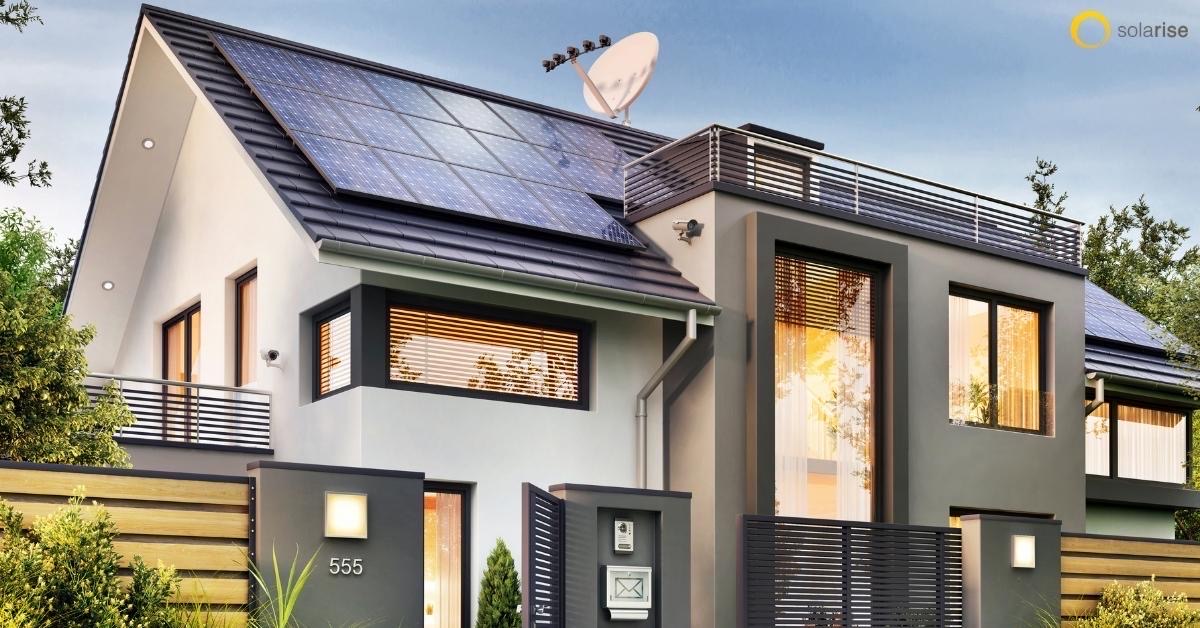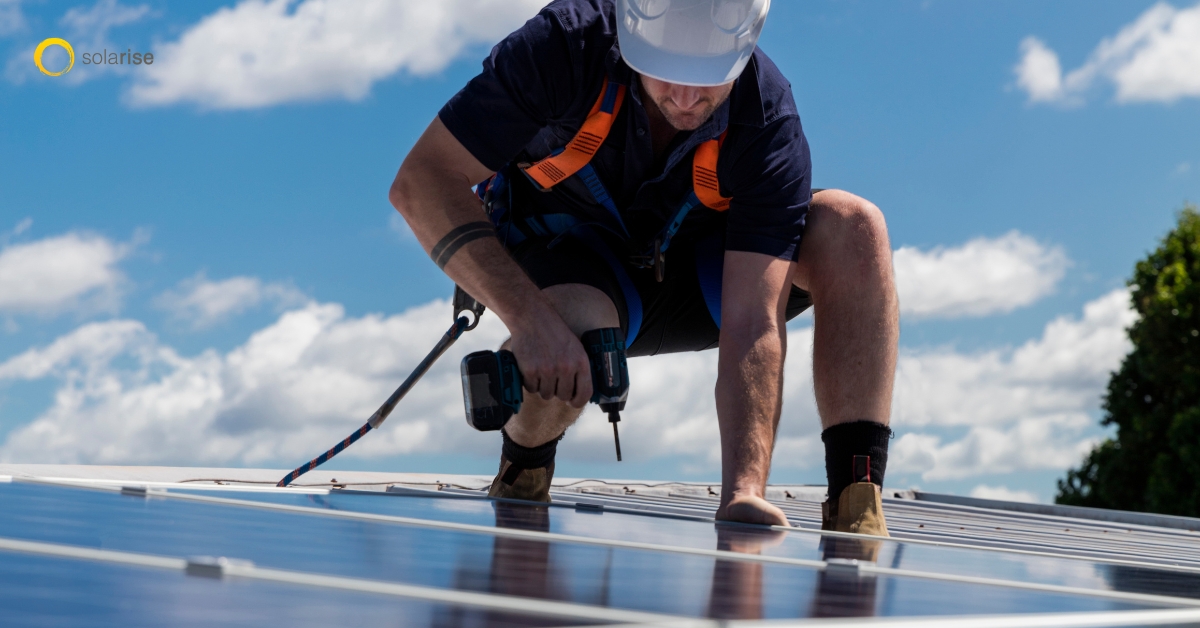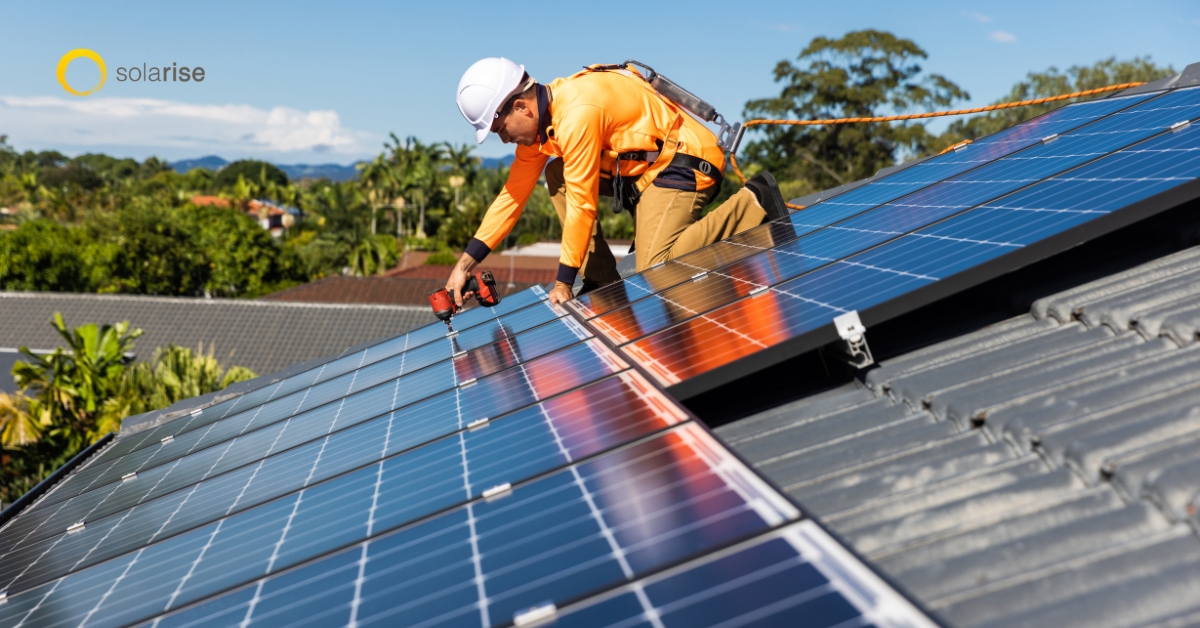You can hear and read about the current transition of U.S. cities and states to renewable energy sources, many with goals of complete conversion by 2030. You can also see the change happening in the ever-increasing number of homes and businesses with solar panels on their roofs. The solar adoption rate has grown by 33 percent over just the past ten years. Clearly, people want freedom from the public power grid and want to help save the environment by going solar. But what are the environmental benefits of reducing carbon emissions by switching to solar at home?
Benefits of Solar Panels to the Environment
Fossil fuels generate massive quantities of carbon pollution, yet they’re still used to produce most of our electricity supply in the United States. Using solar panels emits no such environmental pollutants and requires no fuel except sunlight. Manufacturing solar panels does cause emissions, as does making any other energy-producing equipment, but generating photovoltaic (PV) electricity does not emit pollutants:
- Solar use does not cause any of the long-term pollution damage or risks of environmental catastrophe that come with using nuclear power.
- Solar energy systems do not generate carbon dioxide or gasses that trap heat and contribute to the destruction of the environment.
- Generating solar energy does not produce any of the environmentally damaging emissions that burning coal for electricity causes, such as sulfur dioxide, lead, nitrogen oxides, arsenic, and others.
- Going solar helps avoid the potential for extreme water pollution and other serious environmental risks from extracting and using natural gas.
- Typically, solar panels do not adversely impact wildlife because the panels are normally installed in areas that are already developed.
- Almost no water is used in rooftop PV power production, unlike the process nearly all electric power plants use to generate steam for making electricity. That includes coal, nuclear plants, and many natural gas plants. It also includes some types of non-solar renewable energy plants that use water for cooling.
Solar panels do need proper handling during manufacturing and when disposing of them after their useful life spans have expired. That’s because solar panel manufacturing utilizes a number of hazardous substances, including sulfuric acid, hydrochloric acid, and hydrogen fluoride. Non-silicon panels utilize a greater number of toxic substances than conventional silicon solar cells. Fortunately, recycling old solar panels prevents them from going into landfills.
Government Policies Help Solar Growth and Homeowners
Renewable energy policies at the local, state, and federal levels are essential to the continued growth of rooftop solar panel installation. The clean, renewable energy that residential solar panel systems provide is bolstered in its growth by policies such as:
- Feed-In Tariffs: Homeowners and businesses in some areas of the U.S. (and Europe) are paid for long-term solar generation over a set period.
- Net Metering: Policies requiring utility companies to pay private solar energy system owners for excess electricity they generate and send back to the public grid, usually at full retail rates.
- Solar Incentives: Some states have helped increase renewable energy investment by requiring utilities to participate financially in offering solar panel owners financial incentives for solar installation.
Residential Solar Impact on Pollution Rates
There is plenty of annual sunshine in every state in the country for abundant solar energy production. A properly situated 5 kW PV system can produce up to 75 percent of the electricity needed to power the average home. That represents a very substantial and growing reduction in the national rate of greenhouse gas emissions. These are exciting indicators of the potential for sweeping positive long term effects of solar energy use as residential solar adoption continues to expand.
Other Key Benefits of Going Solar
There are many other benefits from using solar energy at home, in addition to the positive environmental impact of solar power. There are financial savings on heating and cooling costs, and protection from power outages and exorbitant unexpected electricity rate hikes, among other important benefits. See a list of solar energy benefits for homeowners.
Best Value in Residential Solar Panel Systems – Solarise
Solarise engineers will assess whether your property is more suited to solar panel for roof installation or a ground-mount model. Your Solarise solar expert will further determine the amount of solar energy your system will need to produce in order for you to benefit from cost savings from switching to solar.






